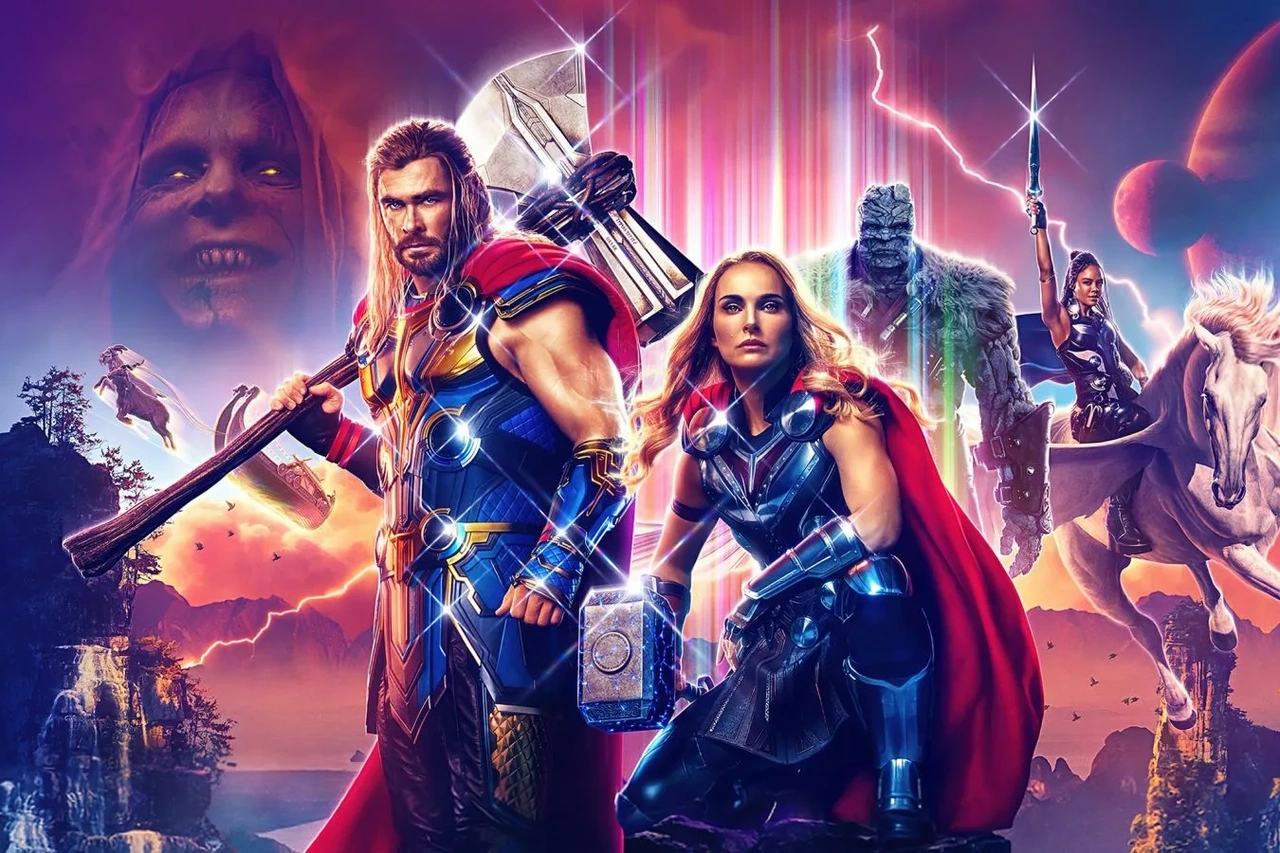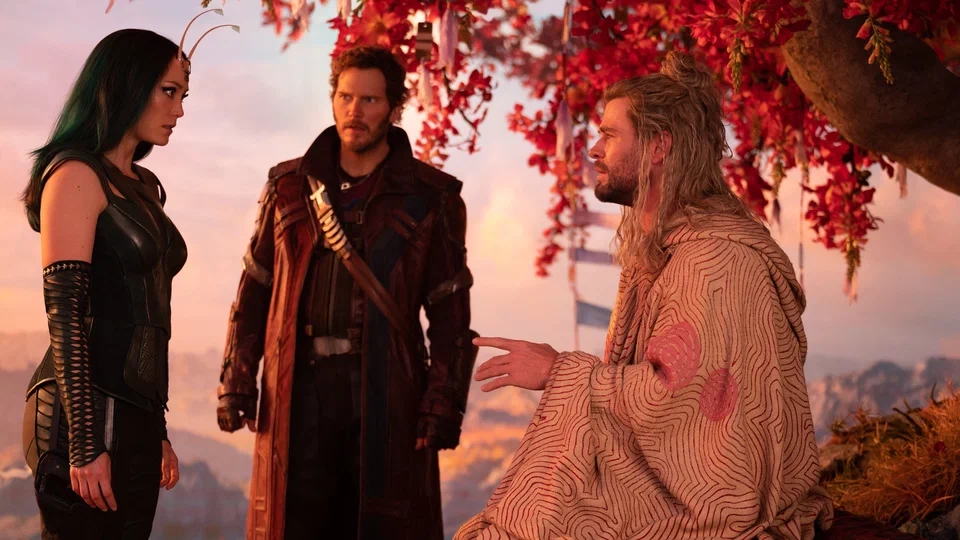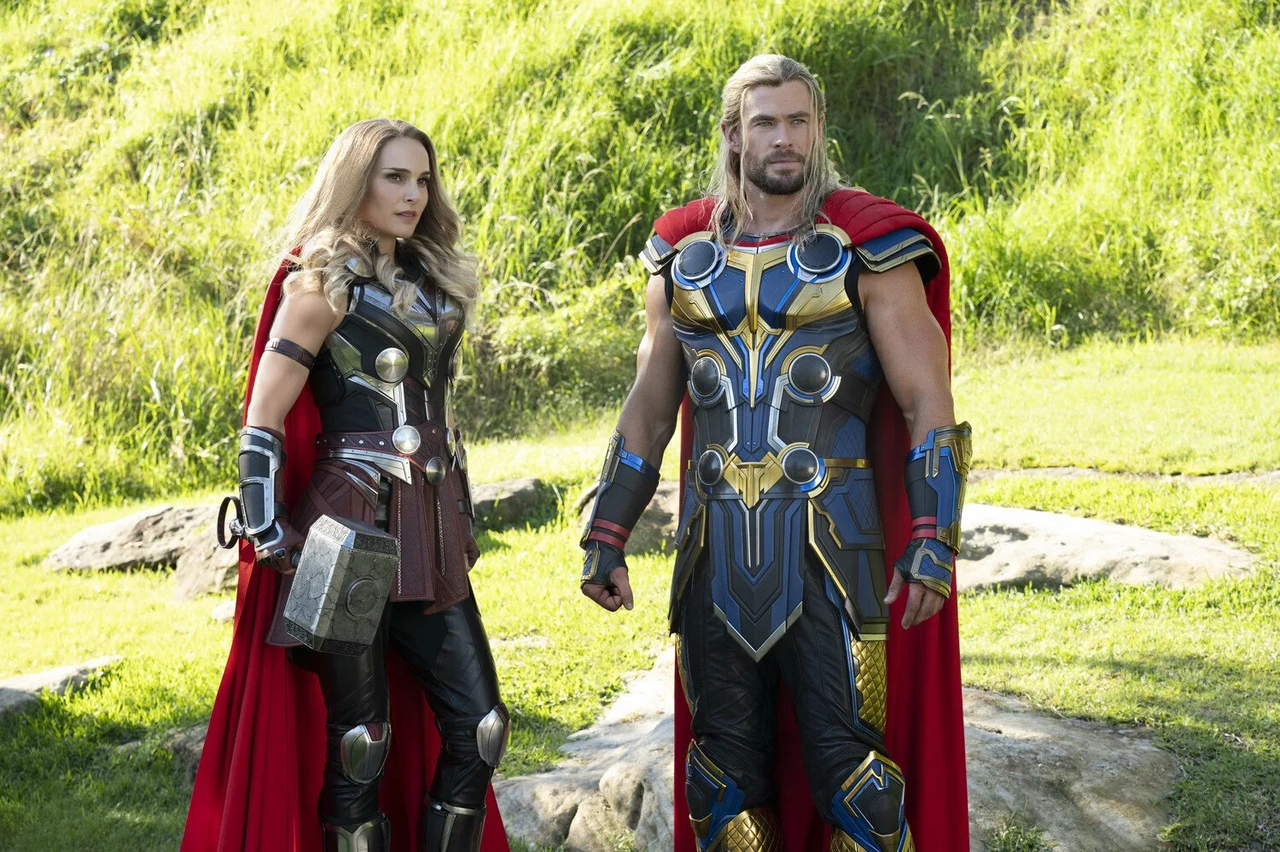Thor: Love and Thunder ⚡💔
Expectations That Fell Flat 🎬
Thor: Love and Thunder was one of Marvel’s most anticipated projects. After all, Chris Hemsworth became the only original Avenger to receive a fourth solo film — a privilege that in hindsight may not have been deserved.
The return of director Taika Waititi, who had radically reinvented Thor’s tone in Ragnarok, promised another fresh and bold adventure. But instead of brilliance, audiences were met with a film that struggled to balance comedy, drama, and myth.

A Villain Wasted 😈
At first glance, the story had potential. Christian Bale’s Gorr the God Butcher enters the film with one of the darkest, most emotionally charged introductions in Marvel history — a man betrayed by his god, vowing to wipe out divinity itself.
The setup is powerful, tragic, and promises real stakes. Yet the script quickly dilutes this potential, reducing Gorr’s journey into scattered appearances that feel rushed and underwhelming.
Instead of the terrifying force he could have been, Gorr becomes an inconsistent villain, fading into the background between forced jokes and unnecessary side plots. What could have been Marvel’s most haunting antagonist ends up as a missed opportunity.
Comedy Over Substance 🤡
Marvel has always blended humor with heroics, but Love and Thunder pushes comedy so far that it undermines the story.
The Guardians of the Galaxy cameo, awkward jokes about catchphrases, and juvenile banter leave the impression of a parody rather than a continuation of Thor’s journey.
This tonal imbalance becomes most glaring in moments that should feel tragic or tense. Children are kidnapped, yet our heroes crack jokes as if the crisis were trivial. Instead of suspense, we get punchlines; instead of empathy, we get detachment. The result is a film that feels emotionally hollow.

Performances Stranded by the Script 🎭
The cast gives as much as they can. Hemsworth plays Thor with charm, Natalie Portman returns as Jane Foster wielding Mjolnir with strength, Tessa Thompson’s Valkyrie commands presence, and Christian Bale commits fully to Gorr. But even strong performances cannot save weak writing.
Certain scenes highlight the dissonance between the script and the characters. For example, Jane discussing her superhero catchphrase in the middle of a crisis feels painfully out of place. These missteps strip away believability and reduce characters who once carried emotional weight into caricatures.
A Journey Without Growth 🌀
The film repeatedly asks: Who is Thor now? After countless battles, losses, and heartbreaks, what direction does his character take? Unfortunately, the movie never answers. Thor feels stagnant, repeating old patterns without any meaningful growth.
The same issue extends to supporting characters. Gorr’s menace fizzles out, Valkyrie is reduced to comic relief, and Jane’s storyline, despite emotional potential, is rushed and inconsistent. Instead of a deep exploration of gods, mortality, and love, the film offers flashy spectacle with little to say.

Beautiful but Empty 🌌
Visually, the film is stunning. Marvel’s technical mastery delivers breathtaking cosmic landscapes, vibrant colors, and smooth special effects.
Yet beauty alone cannot compensate for narrative weakness. The dazzling visuals end up highlighting the hollowness of the script — a shiny surface over a crumbling foundation.
Final Verdict ⭐
Thor: Love and Thunder tries to be a comedy, a tragedy, and a love story all at once, but fails to excel in any of these directions. It diminishes once-strong characters, wastes a brilliant actor as its villain, and prioritizes punchlines over substance. For fans who hoped for a worthy continuation of Thor’s saga, the result is more disappointment than thunder.
Rating: 4/10 — A colorful spectacle that loses its soul in the storm.
Close